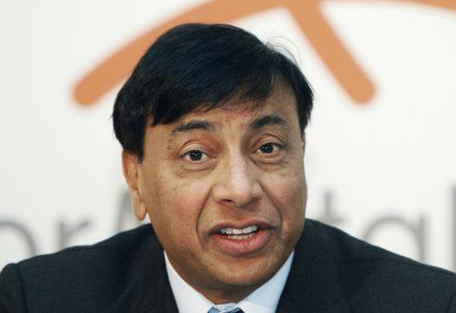
Paris, December 1: Steel giant ArcelorMittal and the French government have reached an agreement on the persisting deadlock over the company's plans to shut down two furnaces in Florange and the government's nationalisation plan of the site.
French Prime Minister Bernard Ayrault announced on Friday night that the government had shelved its nationalisation plan. In return, ArcelorMittal chief Lakshmi Mittal has promised to invest 180 million euros at the Florange site over the next five years and agreed to retain the 629 workers.
"Since its installation, this government has worked without respite so that the industrial site in Florange continues to survive and develop and to make sure that the workers are protected. The government had three aims - no layoffs, significant investment in the site and the maintenance of the furnaces of Florange to prepare for a future industrial project, ULCOS," Mr Ayrault said in Paris.
"ArcelorMittal have accepted the stated conditions. Tonight I can announce there will be no layoffs at Florange. The Mittal group has committed to investing at least 180 million euros in Florange over the next five years," he said.
ArcelorMittal wanted to shut down two furnaces of the site that were not profitable, triggering a huge controversy in France. France's Industrial Recovery Minister Arnaud Montebourg had threatened to nationalise the site until a new buyer was found. He also accused Mr Mittal of lying, saying he does not respect France and should therefore leave the country.
Mr Mittal gave in to the pressure that was building up before the Friday night deadline for closure. The French government wanted to find a buyer for the Florange site but said ArcelorMittal would have to give up the entire site, including the profitable part and not just the two furnaces they wanted to shut down.
Finally, a compromise was reached between ArcelorMittal and the French governement. This will be seen as a political triumph for President Francois Hollande, who had promised to save the workers' jobs. This is perhaps not a big loss for Mr Mittal, given that two thirds of his European business is based in France. Much of it is also profitable due to its proximity to the German auto industry.
"In France people tend to believe that the point of view of the state has to prevail against private interest. We are in a country where we have a statist culture. The other problem is that Mr Mittal made a lot of promises when he bought Arcelor. One of them was that he would make European management in charge of European interests and he didn't stick to his promise," said French economist Elie Cohen.
The workers at Florange, however, are not celebrating. They say they do not trust Mr Mittal's plan and are disappointed that there will be no nationalisation of the site. This despite assurances from Mr Mittal that 180 million euros will be invested and no jobs will be lost.
The sites ArcelorMittal have shutdown in Belgium and France so far were part of the group's strategy to tackle losses from over-capacity and low demand in the European steel industry. However, ArcelorMittal are likely to see this as an investment to boost its image in France.





Comments
Add new comment